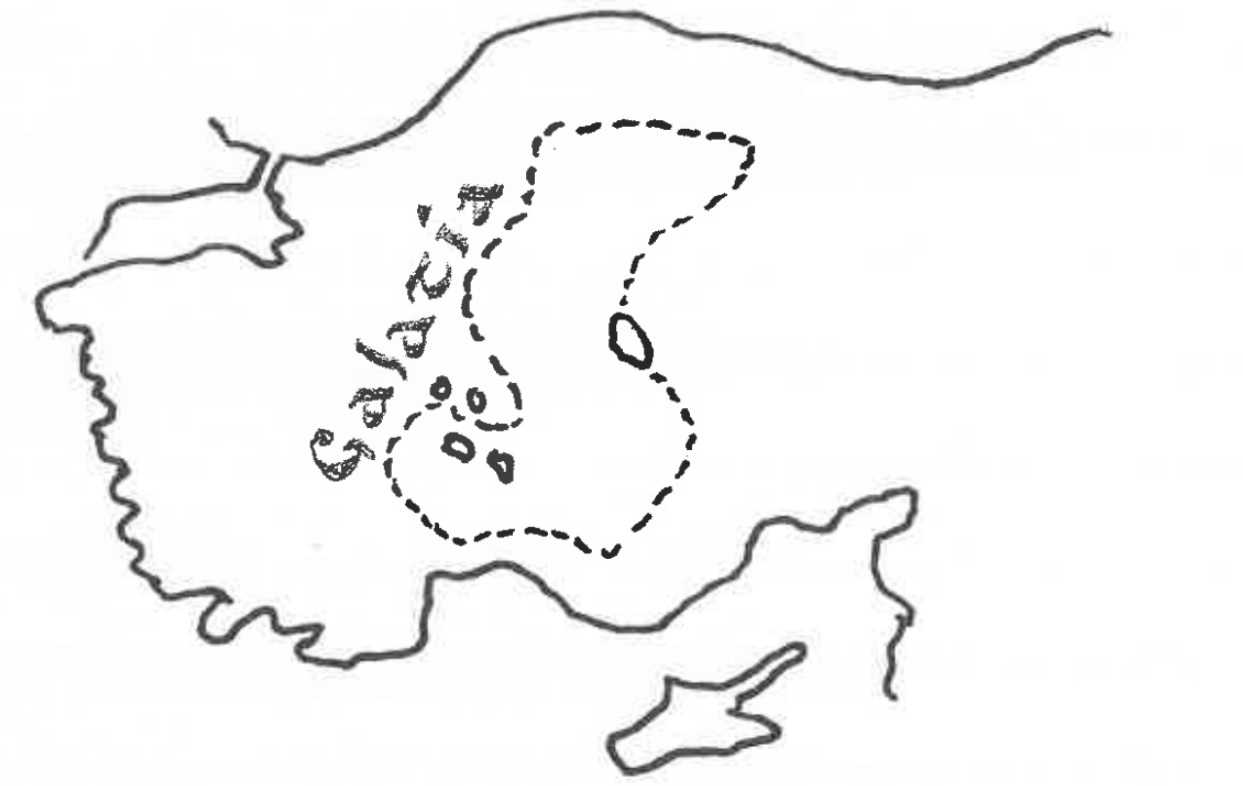God’s Word for You
Galatians Introduction
by Pastor Timothy Smith on Saturday, May 18, 2024
G A L A T I A N S
This autumn will mark the 25th anniversary of these “God’s Word for You” devotions (1270 weeks so far). I began in 1999 with a series on Galatians for a dozen readers, and I would very much like to revisit Pauls’ great Epistle of Grace. Although it is a little early, this seems like a good time to begin. May God bless our continuing study of his Word.
The letters of the New Testament were not written in a vacuum, as if for no reason. Like most of the Epistles, Pauls’ letter to the Galaian churches was written on account of trouble, false doctrine threatening the faith of the Christians there.
Jesus commanded his disciples to be his witnesses “in Jerusalem, in all Judea and Samaria, and to the ends of the earth” (Acts 1:8). Paul, the former enemy of the Christian church, was now its fiercest teacher and proponent. He traveled on foot into Asia Minor, far from Galilee, and into the heartland of that region. Here he found the Galatians. And a question rose up in the area: Was salvation for the Gentiles, too? And was it necessary for them to undergo circumcision, like the Jews? Paul proclaimed that the Gospel of Jesus was for Jew and Gentile alike, and that all are saved by the blood of Jesus on the cross. But as soon as Paul left the area, Jewish Christians (that is Christians who were converted from Judaism) moved in, fanatically twisting and perverting the Gospel taught by Paul and claiming that man is not justified by faith in Christ alone, but has to contribute to his own salvation with certain specific works of obedience.
Luther identifies the problem beautifully: “The world bears a grudge against the Gospel because the Gospel condemns the religious wisdom of the world. Jealous of its own religious views, the world in turn accuses the Gospel of being a subversive and licentious [i.e., rule-breaking] doctrine, offensive to God and man, a doctrine to be persecuted and the worst plague on earth.” Either just before or just after the Jerusalem Council recorded in Acts 15 (opinions vary), Paul wrote this letter to the Galatians before setting out to visit them once again in person. This letter proclaims the Bible’s key teaching of justification by faith alone, which is freedom from the Law of Moses.
Historical Setting:
The gospel was spreading from Jerusalem to Antioch to Galatia (Acts 6:7, 8:1, 8:40, 9:31, 9:43, 12:24, 13:49, etc.) The question was raised as the gospel spread among the Gentiles, “Is it necessary for a Gentile to be circumcised?” Some insisted this was so, that the Gentiles had to submit themselves to the Law of the Old Testament (we will refer to them as Judaizers). Paul doesn’t respond as if this is a mere question, but that this an all-out attack against men’s souls.

Date and Recipients:
We have some difficulty in pinning down Galatians. It must have been written about the same time as the events in Acts 15 (notice especially Acts 15:1-2). But was the Council in Jerusalem convened after Paul wrote the letter, or did Paul write the letter after the Council convened? Our understanding is that Paul writes immediately after the Jerusalem Council. This would set the date at 49 AD at the earliest and 52 at the latest.
In his journal, Julius Caesar called the people of Galatia “Gauls” (Celts). These are the people who were about this time sending explorers toward France and Britain and especially Scotland and Ireland. There was a northern and a southern Galatia; the two regions form the upper and lower halves of a hefty s-shaped region in the middle of Asia Minor (modern Turkey). The southern cities were visited by Paul in his first missionary journey (Acts 13:4-14:27), therefore it is probable that those are the churches he is writing to.
There is an urgency to this letter. Paul has to write instantly because the people of these congregations were on the verge of falling away from the grace of God. When Luther lectured about Galatians in 1519, he found that there was a comparison between Paul’s struggle over the Gospel with the gospel-twisting Judaizers in Galatia and his own struggle over indulgences (his 95 Theses were written little more than a year before) and other things insisted upon by the Church of his day. Today, we find that there are many who say that they believe what we do, but who abandon the authority of God’s Word just as the Judaizers did in Paul’s time. It would be beneficial to see how the study of Galatians helps us to understand Luther’s context and experience as well as our own, but I fear that time will not often permit this. But we will certainly apply the Word of God into our own lives and the dangers we face today. Let us take the word of God, every letter and each and every syllable, and hold it all dear. The word of God is life, forgiveness, and the resurrection from the dead for us all. “I do not reject the grace of God! For if righteousness could come through the law, then Christ died for nothing!” (Galatians 2:21).
Outline: This outline is very simple but describes the entire letter.
I, Paul defends his apostleship (1-2)
II, Paul explains Justification
(How we are forgiven by God, 3-4)
III, Paul explains Sanctification
(How we live before God, 5-6)
“Has it not been declared to you from the beginning?” (Isaiah 40:21).
“Your Word, O LORD, is eternal” (Psalm 119:89).
In Christ,
Pastor Timothy Smith





